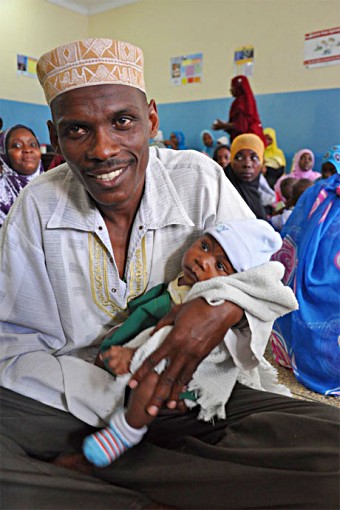
Name
Mohamed Khamis, father of two-month-old Niki
Location
Stone City, west district
Viewpoint
Mohamed regularly brings his two-month-old son Niki to the KMKM Maternal and Child Health Clinic, just outside Zanzibar’s capital Stone Town. “I know the importance of vaccination,” says Mohamed Khamis. “All of my children have been immunised.”
Thanks to the health ministry’s awareness campaigns, fathers like Mohamed are all too aware of the need to vaccinate their children. From regional radio and television channels down to local community leaders, the health ministry mobilises fathers and mothers to attend immunization clinics. Each year, the health ministry ranks the success rates of different districts of Zanzibar in reaching children with life-saving vaccines – an encouragement to strive for ever better performance.
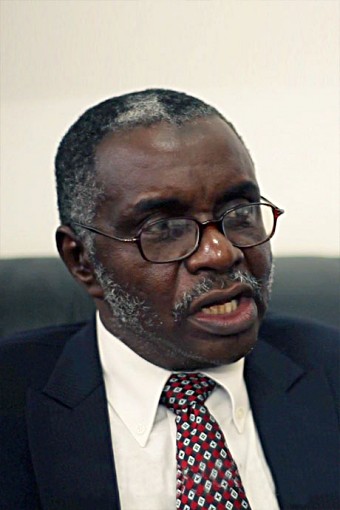
Name
Honourable Juma Duni Haji, Health Minister
Location
Health Ministry, Stone City
Viewpoint
“We give very high priority to immunisation because we believe serving children is serving the future population. Immunisation is an investment for the future,” says Health Minister Juma Duni Haji.
“If we have healthy children, they will have better education and their minds will grow better. Economically, they will be part of the country’s productive force in the future.”
“Whenever you see any country in this world, which has successfully developed, whether it’s in Europe or in Africa or anywhere, it is because they invested in human resources – not only training them when they are grown up, but preparing them when they were young.”
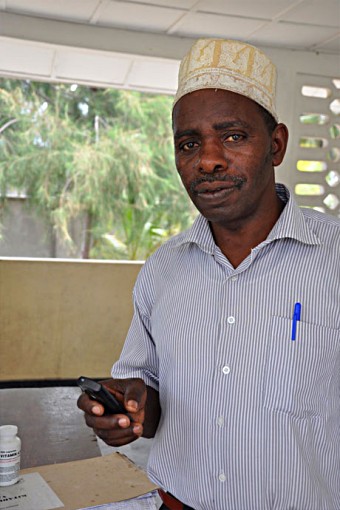
Name
Yussuf Makae, manager of Expanded Programme for Immunisation
Location
Health Ministry, Stone City
Viewpoint
With 140 health units scattered across Zanzibar’s islands, Yussuf Makae, EPI manager for Zanzibar, estimates that no-one lives further than three kilometres from a health facility. “We have a strategy to reach every child with vaccination,” says Makae, “Most of the time we use cars, and sometimes motorbikes and bicycles. There are communities living on small islands. We have to use boats, both traditional and motorised, to go to serve them.”
“All kids are vaccinated free of charge,” says Yussuf, “we go everywhere with our outreach programmes to try to reach them all for vaccination.”
Yussuf’s team work closely with local health committees to understand how to make the most of immunization sessions. “We also include other services during outreach services, so that it is not only immunisation,” he says. “This way we can can get more kids to come.
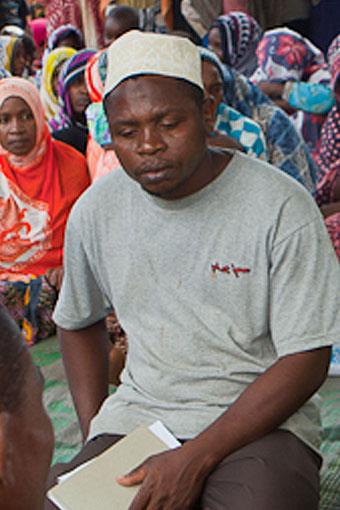
Name
Juma Haji, focal point for health
Location
Kiyongwe village, 30km from Stone town
Viewpoint
“We realise that our children’s health is getting better and better and one of the main factors is vaccines,” says Juma Haji, focal point for health in the village of Kiyongwe.
The villagers of Kiyongwe, who number 2,000, are so committed to the value of vaccines that they have started building their own health facility drawing on their own savings. The skeleton structure on the edge of the village, with no doors or windows, stands unfinished and in need of public funding to.
“The current health facility is too far away for our families,” says Juma, “when mothers and children have to go to hospital, they are ferried on bicycles. We don’t have any cars.” The wood and thatched huts of Kiyongwe, set amid green fields and banana plants, lies at the end of a potholed dirt-track that requires 4x4 trucks to drive in the rainy season.
“The entire community is happy to hear the news that two new vaccines (pneumococcal and rotavirus) will be introduced in January,” says Juma, “Our forefathers taught us that nothing is more important than having healthy children.”
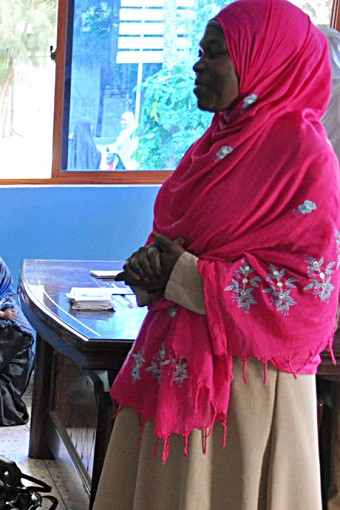
Name
Mwatima Khamis, public health nurse
Location
Jambiani health facility, south district
Viewpoint
Working on the frontlines of vaccine delivery at Jambiani health facility, which serves 6,500 people, nurse Mwatima Khamis is all too aware of the value of the pneumococcal and rotavirus vaccines that will soon be available to protect Zanzibar’s under-fives from the primary causes of pneumonia and diarrhoea respectively. “Chest infections, including pneumonia, are a big problem for children in this area,” she says, “during the rainy season, we also see a lot of diarrhoea in young children, so it will really be good to see the new vaccines.”
Like all health staff in Zanzibar, Mwatima Khamis has completed a special training programme to prepare for the challenge of administering two vaccines in the same immunization session. “We have only ever introduced one new vaccine at a time, but with two new vaccines we really need to intensify our efforts – especially in communication and dialogue with the community. We have been engaging with them in meetings, informing them that there will be two new vaccines, and why. This sort of thing can bring up fears. Our approach is to hold face to face meetings to go over all the issues, to reassure them about the safety of the new vaccines and about the protection they will give our children.”
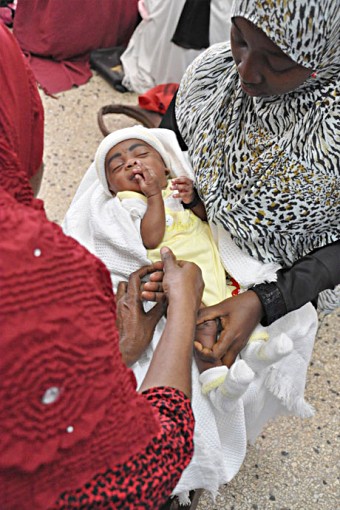
Name
Hidaya Iddi Makame, mother of Abadalla Iddi Makame
Location
Jambiani, south district
Viewpoint
As her second son Abdalla Iddi nestles in her arms after receiving the five-in-one pentavalent vaccine at the local health clinic, Hidaya is relieved to hear that all her children will soon receive the pneumococcal and rotavirus vaccine, which offer protection from the primary causes of pneumonia and diarrhoea respectively.
Six years ago, Hidaya’s older son Abdulaziz, aged one, had to be hospitalized when he contracted pneumonia. He survived but many other children lose their lives to the biggest killer of under-fives in Tanzania. “Vaccines protect children before they get sick,” she says. It will be very helpful to have these new vaccines that will protect children from pneumonia and diarrhoea.”
